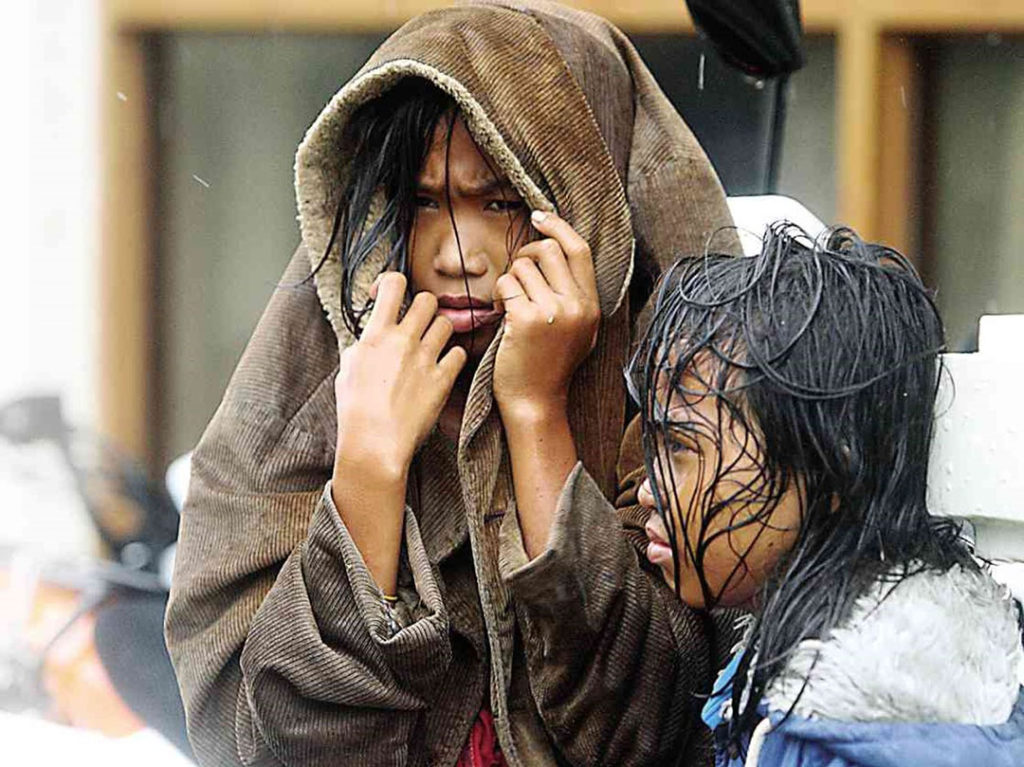The initiative also calls attention to the preponderance of non-solutions to climate change being floated in global conferences that are supposed to find solutions.
By MARYA SALAMAT
Bulatlat.com
MANILA – Climate migrants or climate refugees, anyone?
These are the terms used to refer to people who fled their homes due to climate change. And they have a short message at this point: They’re not drowning. They’re fighting.
They were forcibly displaced because climate change is causing their areas to sink underwater, or they are lashed more frequently by storms or cyclones, drought and other extreme weather events.
By 2050 the UN estimates that up to one billion people will have been displaced due to environmental crises arising from climate change.
But while there is some degree of international recognition and agreements covering other refugees and migrants, there is none for climate migrants.
At a conference-workshop from September 17 to 19 in Manila titled “Beyond Labels, Beyond Borders: International Solidarity Conference on the Rights of Climate Migrants,” the participants came up with a unity declaration called the Manila Initiative stating their shared analysis of the problems facing climate migrants, and what actions countries must do to face it and “push for real fundamental shifts to save our planet.” The signatories were from Asian, African, and Latin American countries, as well as German advocates including a member of Parliament.
The conference was organized by Rosa Luxemburg Stiftung, Kalikasan Peoples’ Network for the Environment, International Migrant Alliance, and the Global Campaign to Demand Climate Justice. They hope to bring the initiative to more areas and spaces to influence policies concerning migrants up to the global conferences on climate change.
“We are not drowning, we are fighting,” are the new narratives that Natalie Lowrey of Yes to Life No to Mining Network from Australia and its aboriginal people want everybody to impart.
For his part, the Philippines’ Human Rights Commissioner Chito Gascon, summarized the emerging call by the gathered groups to shift the response to global climate migration “from containment and exclusion to one informed by human rights.”
The Manila Initiative for climate migrants recognizes that “Forced migration in the face of ecological violence is a last resort for many people.” Much like the people who “evacuated” due to armed conflict, climate migrants do not necessarily want to leave their homes or their countries. They do so only for “economic and environmental survival.” Neither do they want to find themselves stripped of certain human rights and dignity just because they have been forced to leave their homes or countries. No human being is illegal, they said, but they noted that when you cross the border it’s as if you don’t have rights anymore.
Worse, the conference delegates emphasized, the migrants or refugees mostly from the Global South are hardly the people to blame for climate change, biggest emitters and polluters are. And they reside or come from developed countries, the same countries erecting walls against migrants, and the same countries backed by what Tetet Nera Lauron, adviser to Rosa Luxemburg Stiftung, described as a very strong fuel lobby. This, she said, is “effectively blocking any meaningful discussion on conflict of interest policy,” as such blocking progress, too, on talks about climate policy in the UN Framework Convention on Climate Change – UNFCCC.
“How could we say that we want to protect our way of life in Europe?” asked Lorenz Gösta Beutin, a member of Parliament from Germany, during the conference in Manila. Because Germany, for one, has exploited people and is the fourth biggest carbon dioxide emitter in the world, he said, it has a duty to do something about climate change.
“Those who contributed the least (or not at all) to the causes of this crisis are experiencing the worst of its impacts, and, has also exacerbated their exposure to a myriad of structural inequities. They lose access to their lands, food, water and other sources of income and their ability to manage them,” the conference participants said in their joint Manila Initiative.
The initiative also calls attention to the preponderance of non-solutions to climate change being floated in global conferences that are supposed to find solutions. These include the strong government and corporate lobby for biomass and biofuels which result in intensified land grabs for electricity production, deforestation for fuel and increased use of water by biomass facilities. The drive to expand oil palm plantations in many countries is resulting in peasant killings and land grabs. The corporate drive for renewable energy such as wind and solar farms is also resulting in repression of affected farmers. Worse, reports say substances needed to use solar cells, and the burning of forest lands to convert it to biofuel plantations are also big emitters of greenhouse gases.
“We strongly oppose these measures as they do not address the real causes of climate change and threaten to derail the little progress we have made in solving this catastrophe.” the Manila Initiative said.
The post Manila Initiative urges real solutions to climate crisis appeared first on Bulatlat.


